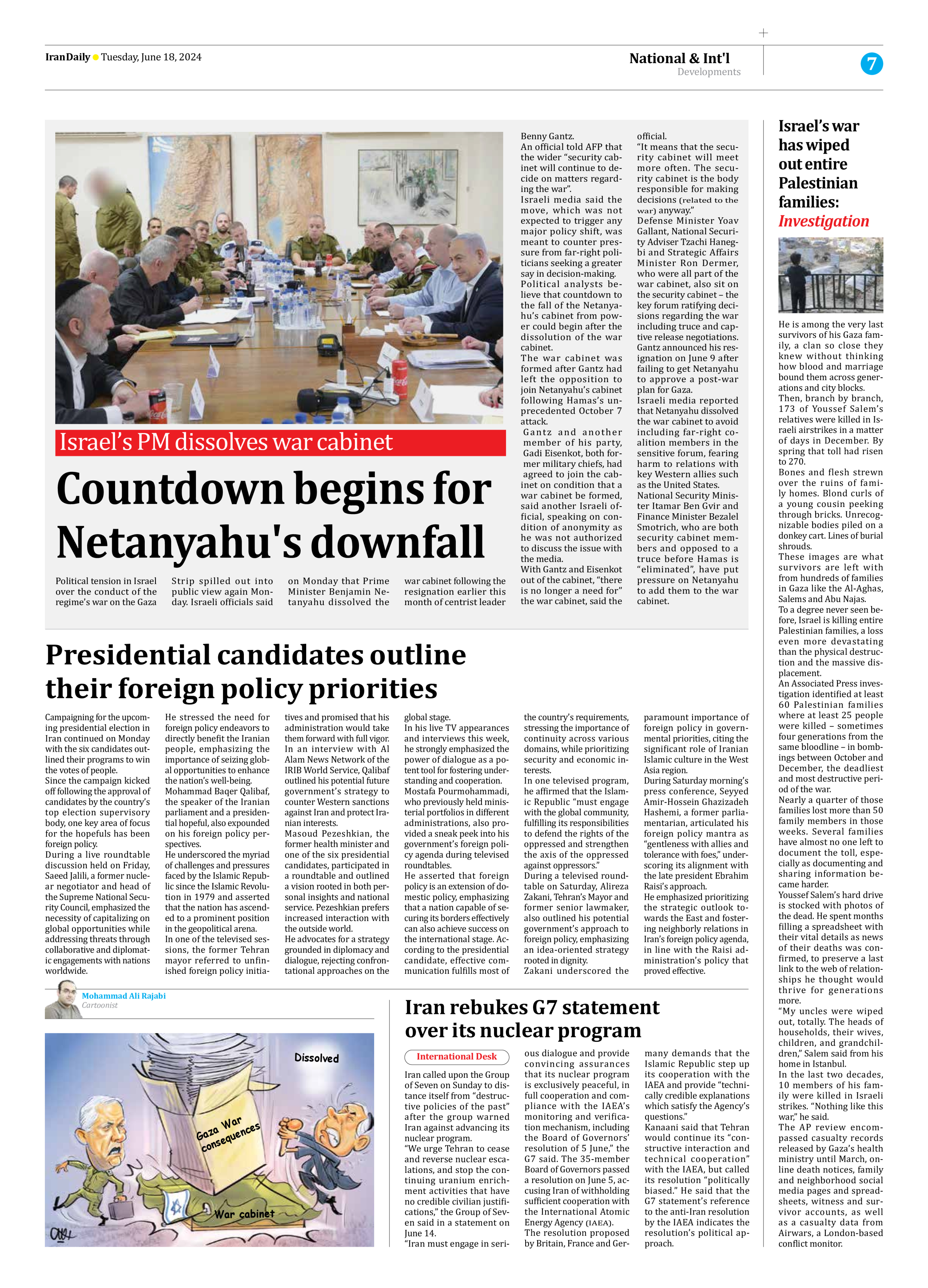
Copy in clipboard...
Israel’s PM dissolves war cabinet
Countdown begins for Netanyahu’s downfall
An official told AFP that the wider “security cabinet will continue to decide on matters regarding the war”.
Israeli media said the move, which was not expected to trigger any major policy shift, was meant to counter pressure from far-right politicians seeking a greater say in decision-making.
Political analysts believe that countdown to the fall of the Netanyahu’s cabinet from power could begin after the dissolution of the war cabinet.
The war cabinet was formed after Gantz had left the opposition to join Netanyahu’s cabinet following Hamas’s unprecedented October 7 attack.
Gantz and another member of his party, Gadi Eisenkot, both former military chiefs, had agreed to join the cabinet on condition that a war cabinet be formed, said another Israeli official, speaking on condition of anonymity as he was not authorized to discuss the issue with the media.
With Gantz and Eisenkot out of the cabinet, “there is no longer a need for” the war cabinet, said the official.
“It means that the security cabinet will meet more often. The security cabinet is the body responsible for making decisions (related to the war) anyway.”
Defense Minister Yoav Gallant, National Security Adviser Tzachi Hanegbi and Strategic Affairs Minister Ron Dermer, who were all part of the war cabinet, also sit on the security cabinet – the key forum ratifying decisions regarding the war including truce and captive release negotiations.
Gantz announced his resignation on June 9 after failing to get Netanyahu to approve a post-war plan for Gaza.
Israeli media reported that Netanyahu dissolved the war cabinet to avoid including far-right coalition members in the sensitive forum, fearing harm to relations with key Western allies such as the United States.
National Security Minister Itamar Ben Gvir and Finance Minister Bezalel Smotrich, who are both security cabinet members and opposed to a truce before Hamas is “eliminated”, have put pressure on Netanyahu to add them to the war cabinet.







